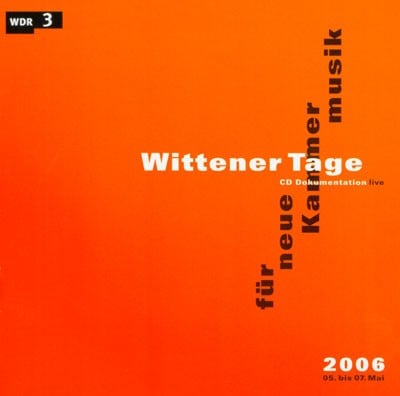1.1.1.dbcl.0.dbn-1.1.1.1-perc(2)-pft-sampler-strings(1.1.1.1.1)
Abbreviations (PDF)
Bote & Bock
The current situation, as reflected in the news, suggests that a new form of irrationality is on the advance, that global politics is increasingly dominated by archaic ‘passions’ and brutal violence. It seems that the values and standards that have been gradually established in the so-called West in the process of enlightenment and secularisation, are becoming less and less important, and, moreover, cannot necessarily be exported. This is not really surprising, since the existential metaphysical questions have been gradually suppressed in the process of enlightenment and left to the religions. From that ‘corner’ they now seem to catch up with us again, monstrously distorted and enlarged; this development is frightening, for women in particular.
In any case, the images going around the globe haunt me, and I feel that they are doing something to me – that they are changing me. That something is happening inside me. That’s what Zerstören is about. You could also say: Zerstören is an attempt to translate my psycho-somatic response to these events into sound.
To begin with, I only had an idea of the ‘climate’ that was to prevail in the piece: a kind of general excitement or tension, constantly interrupted by pseudo-passionate outbursts or, in contrast, lurking silence.
In addition, right from the beginning there was a ‘ground colour’ for the future piece in my mind: a dirty, sandy yellow. Then it occurred to me that, the longer I was occupied with Zerstören, there was an ‘inner film’ building up more and more densely, which at one point became a kind of framework for the compositional process itself. This ‘inner film’ has no action and consists more or less of recurring short documentary-style snapshots which fade in and out, overlap with other shots, briefly reappear in other places, in different perspectives and speed, disappear again etc. There are always several shots visible at the same time as the screen is subdivided several times. The individual shots are visible as shadowy outlines only, as though the lens was scratched when the shots were taken.
It was the construction of this ‘inner film’ that guided me through the process of composition, along with the ‘climate’ and the ‘ground colour’ present from the beginning. Zerstören consists of several vertical layers which overlap and continually fade in and out. Part of the material recurs throughout the piece, though it’s set into different times and contexts at each recurrence. Single voices only stand out from time to time. Low registers are dominant. There is an inner pulse (speed: crotchet = 120) which is constantly excited and runs through most of the piece. Apart from a small number of exceptions, concrete sounds are undesired. What prevails is ‘dirt’, or noise. The instruments are amplified to make their sounds – and the ‘dirt’ – more intense. The added sampler has the same function. Sometimes there are outbursts of pseudo-passion.
(Iris ter Schiphorst; translation: Andreas Goebel)
“One of the most impressive pieces of the festival was Iris ter Schiphorst’s Zerstören which transforms the global omnipresence of violence into multifarious reactions in sound, creating an ‘internal film’ that captivates with an unfathomable thrill.” (Dirk Wischollek, Neue Zeitschrift für Musik 4/2006)
“Zerstören, with its layers of sounds, its agitated sequences, its psychologically resonant vibrations and attacking noise, is a reaction to reality – a kind of self-defence in music.” (Gerhard Rohde, Frankfurter Allgemeine Zeitung, 16 May 2006)
“… The two sheets of sound that were slid into each other in Iris ter Schiphorst’s gripping ensemble piece Zerstören (Destruction) had almost bodily presence. The energies accumulated in them finally burst, before slowly going out towards the end of the work.” (Stefan Drees, Positionen 68, August 2006)

Asko Ensemble / Hans Leenders
WDR CD Dokumentation Witten 2006
